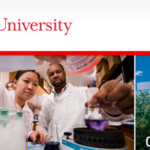Bay Area group has helped create more than 130 new jobs since 1999; coached women in practices
New America Media, News Report, Peter Micek, Oct 31, 2006
SAN JOSE — She knew the pottery trade from her days in her native Vietnam, recent immigrant An Pham says. When Pham tried to start her own business selling pottery, however, banks denied her loans due to her status as a divorcee. Reading a Vietnamese newspaper one day, she saw an advertisement for Anew America, offering courses and business training and support to immigrants and their families. She called the number and interviewed. “I studied about small business management,” she says. “First, I only think, ‘I’ll learn to get a job,’ but the more I learn the more I think I’d like to do my own business.” Like the Women’s Initiative, a bilingual entrepreneur-education program begun in 1988, Anew America serves a largely female group of entrepreneurs. Both organizations offer classes in English and Spanish and provide matching funds for what the entrepreneurs save. Creating more than 130 new jobs since its inception in 1999, according to Sylvia Rosales-Fike, president and CEO, Anew America targets low-income immigrants, largely Latino and Asian, in the Bay Area. More than 850 women have participated and more than 88 businesses have received assistance and 19 clients have bought 32 homes. Clients’ net assets enjoy an average growth of 35 percent. Its Women’s Business Center serves 1,000 families per year. “It’s important that mainstream Americans know what new Americans are about,” Rosales-Fike says. “As far back as the 1920s, in times of economic crisis, every new group is always seen as the cause of our problems. It is important to realize that immigrants have contributed to American life since the beginning.” Her group, she says, “brings underserved people like An — raising two children — into the system.” Anew America focuses on long-term economic empowerment, believing economic stability is the first step toward incorporating immigrants into mainstream culture. Those enrolled in business classes receive coaching to maintain or start small businesses and build wealth for their families. Seventy percent of participants are women, and graduates earn certificates in business planning from a local university. Lacking plans, many ethnic businesses fail within a year, says program officer Mimi Nguyen. With the help of board member Alice Waters, organic food maven and owner of a restaurant in Berkeley, where Anew America is based, the group matches savings of up to $3,000 over a six to 24-month period, through accounts funded by the Department of Health and Human Services Assets for Independence Act (AFIA). To qualify, says program officer Nguyen, immigrants need a solid idea for a business, and proof they will remain in the United States. Pham completed Anew America’s business incubator program, a 25-week program with one course weekly. “I feel confident to do business in a new country, for I understand about American laws, how to run, learn, and gain business skills, and knowledge of marketing and sales,” she says. “So, I decided to set up my own pottery business, for I can show and share Vietnamese culture and pottery created from different regions of Vietnam.” At the grand opening ceremony of HP Pottery, her new San Jose store, An Pham mused, “It’s been five years already.” “I came to America as a new immigrant,” she said. “It is not easy.” She gives to charity, Pham said, donating wheelchairs to the Long Buu Charity Medical Clinic in Vietnam. Her crafts, she says, bring Vietnamese and Americans together to understand each other better. “I will succeed,” she repeated.
Other Recent Readings of Interest by NAM
|
||
|









